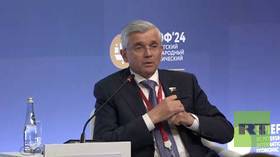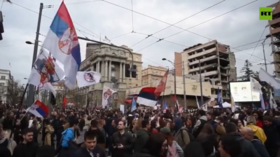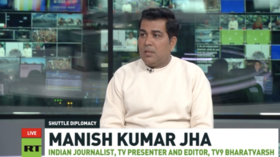SPIEF 2024: Russian MP warns Western pharma giants about patents

Protecting Russian lives is more important for Moscow than defending the intellectual property of Western pharmaceutical giants, an MP has argued during a debate on drug security in BRICS nations.
Speaking on Wednesday during a panel discussion on the sidelines of the St. Petersburg International Economic Forum (SPIEF), Russian lawmaker Aleksandr Petrov warned Western firms not to “poke us with patent law.”
“We respect it, but when it comes to the lives and health of our citizens and those of our allies, we will break it. It is important to us, but not paramount,” added the MP, who sits on the Health Committee in the Russian State Duma.
Also appearing on the panel, Deputy Trade Minister Ekaterina Priyezzheva explained to the audience and foreign participants that Petrov was not advocating for Russia to resort to intellectual piracy against drug producers, but rather for a legal mechanism to circumvent sanctions.
Petrov was specifically referring to the antidiabetic medicine Ozempic, a flagship product of Danish pharmaceutical giant Novo Nordisk. Last year, the Russian market experienced a near-total cut in its supplies amid Western economic sanctions.
In response, the government issued a series of emergency licenses to produce generic variants of the drug. Petrov hailed local firms that had swiftly launched their own manufacturing as an example of Russian pharmaceutical competence.
Proper regulation of the industry and the need to balance this while fostering competition was a major theme of the discussion. Russian Health Minister Mikhail Murashko, the keynote speaker, argued that the Covid-19 pandemic had shown that “regulatory mechanisms, which certain nations try to impose, do not necessarily work… for world health.”
According to Moscow, the US and its allies deliberately undermined the global availability of Russian vaccines against Covid in favor of products developed by Western companies.
Speaking on the panel, Alexandre Cordeiro Macedo, the president of Brazil’s competition agency, CADE, urged intragovernmental cooperation on both tracks. Drug regulators all ultimately speak the language of health, just like antitrust agencies speak the language of competition, he argued.
Russia perceives cooperation within BRICS as a key driver for its own innovation and healthcare accessibility. It is developing cutting-edge solutions in radiotherapy, anti-allergy vaccination, and patient-tailored cancer treatments, and is keen to offer them to other members of the club of leading non-Western economies, Murashko and other speakers said. Moscow is also seeking to address the current imbalance in drug trade, largely caused by imports of raw materials for Russian manufacturers.













